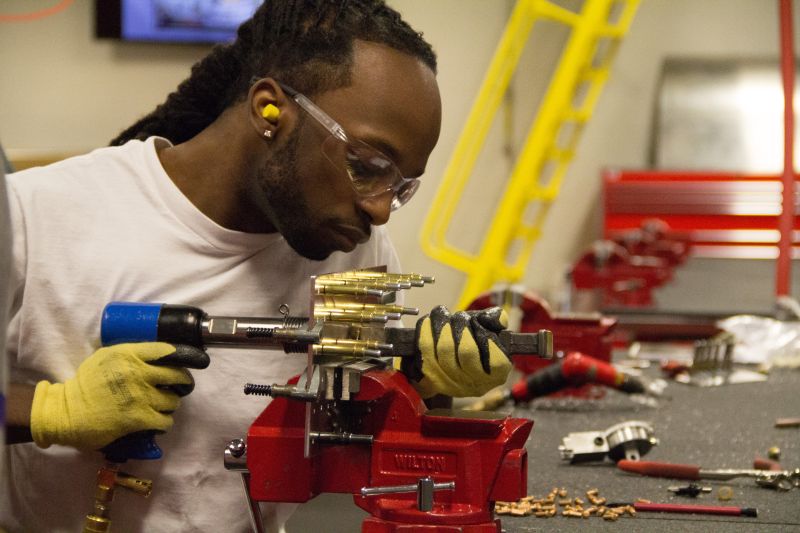Transforming Graduate Education in Transportation Engineering: Rowan University's bold initiative
In a rapidly evolving world where technology and innovation intersect, Rowan University's Transforming Graduate Education in Transportation Engineering program shows how to accelerate STEM graduate students' transition to industry and government positions. This pioneering initiative, funded by the U.S. National Science Foundation Innovations in Graduate Education (IGE) program, leverages the cognitive apprenticeship model to revolutionize how doctoral students transition their skills from research to real-world practice. Led by principal investigator Yusuf Mehta, this program is not just reshaping education; it is redefining the future of transportation engineering.
Program description
At its core, the Rowan University program aims to bridge the gap between theoretical research and practical application in the field of transportation engineering. Utilizing the cognitive apprenticeship model, the program immerses graduate students in hands-on, real-world scenarios where they can apply their research directly to industry challenges. This innovative approach ensures that students are not only adept at conducting innovative research but also proficient in translating their findings into tangible solutions.
Cognitive apprenticeship is an educational model that focuses on teaching students the processes experts use to execute complex problem-solving tasks. Where traditional apprenticeship may emphasize physical skills, cognitive apprenticeship centers on cognitive skills and processes, making the thoughts of experts visible to learners. Cognitive apprenticeship uses modeling, step-by-step guidance, coaching, decision-making and performance measurement to impart a greater understanding of the processes to accomplish specific problem-solving tasks. This approach ensures that students develop both the theoretical knowledge and practical skills needed to excel in their field.
"Our goal is to create a new generation of transportation engineers who are equally comfortable in the lab and in the field," says Mehta. "By embedding cognitive apprenticeship into our curriculum, we provide our students with the skills and confidence they need to make a real impact."
Program implementation
The implementation of this program is both comprehensive and dynamic. It involves the integration of both academic and nonacademic (industry or government mentors) mentors as part of the graduate students' dissertation committees. These mentors guide the students through a series of progressively challenging projects that mimic real-world engineering problems.
Students engage in real-world case studies, collaborative research projects, internships and/or field experiences, all while receiving continuous feedback from their mentors. This iterative learning process ensures that students develop a deep understanding of the practical applications of their research.
"The integration of mentorship and direct industry experience is critical to our program's success," explains Mehta. "Our students benefit from the wisdom of experienced professionals and the opportunity to evaluate their ideas in real-world environments."
Program outcomes and impact
The impact of the NSF Transforming Graduate Education in Transportation Engineering program has been profound. Graduates of the program prepare to be leaders in industry or government due to their ability to seamlessly transition from academia to practice. Students gain a unique blend of research expertise and practical skills, making them invaluable assets to any organization.
Furthermore, the program has led to groundbreaking advancements in transportation engineering. From innovative traffic management systems to sustainable infrastructure solutions, the contributions of Rowan University's graduates are helping to shape the future of the industry.
"Our graduates are not just engineers; they are innovators and leaders," says Mehta. "They are driving progress in transportation engineering and setting new standards for what is possible."
How other universities can join the program
Rowan University's success serves as a model for other institutions looking to transform their graduate education programs. Universities interested in adopting this approach can collaborate with Rowan University to learn from their experience and implement similar cognitive apprenticeship models within their own programs.
Mehta and his team are eager to share their insights and methodologies with other educators. "We believe in the power of collaboration and the importance of sharing knowledge," says Mehta. "By working together, we can create a brighter future for transportation engineering and for STEM education as a whole."
Rowan University's innovative approach to graduate education in transportation engineering is paving the way for a new era of STEM research and practice. By embracing cognitive apprenticeship, the program helps STEM graduate students enhance their skills and make a lasting impact on the industry.
As Cheryl Bodnar, co-principal investigator of the program summarizes, "We believe that the future of transportation engineering lies in the seamless integration of research and practice. Our approach equips students with the skills to not only conduct groundbreaking research but also to implement innovative solutions that have a real-world impact."
The NSF IGE grants are not merely funding opportunities; they are the engines of progress, driving the leaders of tomorrow toward innovation. Through the concerted focus on data science, project management and communications and writing, NSF is crafting a new generation of scientists and engineers who are not only experts in their respective fields but also adept at steering the ship of progress into a future armed with the tools of analysis, leadership and command of delivery.


